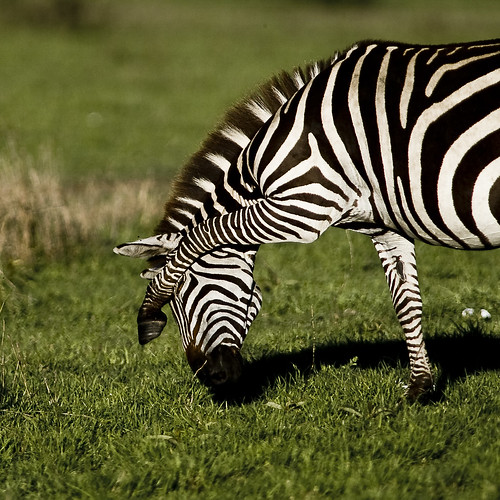
Zebra trying to hide, pretending to be a urinary tract infection.
Luckily, you do exactly what you usually do. When on the savannah, you shoot everything. What kind of wall trophies you get depends on whether you bring a gun or a camera. If there was a zebra there, even if it tried to hide, you'll have a zebra on the wall when you get home. When in the coal mine that is the ER, or the peat bog of general practice, you exclude the dangerous and the common and then you start excluding the less common (or refer for that purpose). The trick is to not fall for the obvious, common and dangerous diagnosis, and to remember to ask yourself how you account for the unexpected finding that doesn't fit.
So, why this sudden elaboration? Well, we just spotted a zebra, and not just any zebra, but a purple spotted zebra.
Wish us luck.


Michael a few days ago my doctor told me he thought I have renal tubular acidosis type 4. I've been diabetic for 4 years, HbA1C is always less than 6 but lately my K has been a little high up to 6.4. I was in med school a years ago and he kept mentioning horses and zebras related to RTA.
ReplyDeleteI understand what RTA is but am confused about the horses and zebras references. Haven't been able to connect the three on the internet. Can you help me out?
Thanks,
joegarza49@comcast.com
The horses and zebras comes from the saying: "When you hear hoofbeats behind you, don't expect to see a zebra," which refers to the fact that you should not expect the uncommon. This ties into RTA, which has some common and some rather less common causes.
ReplyDelete